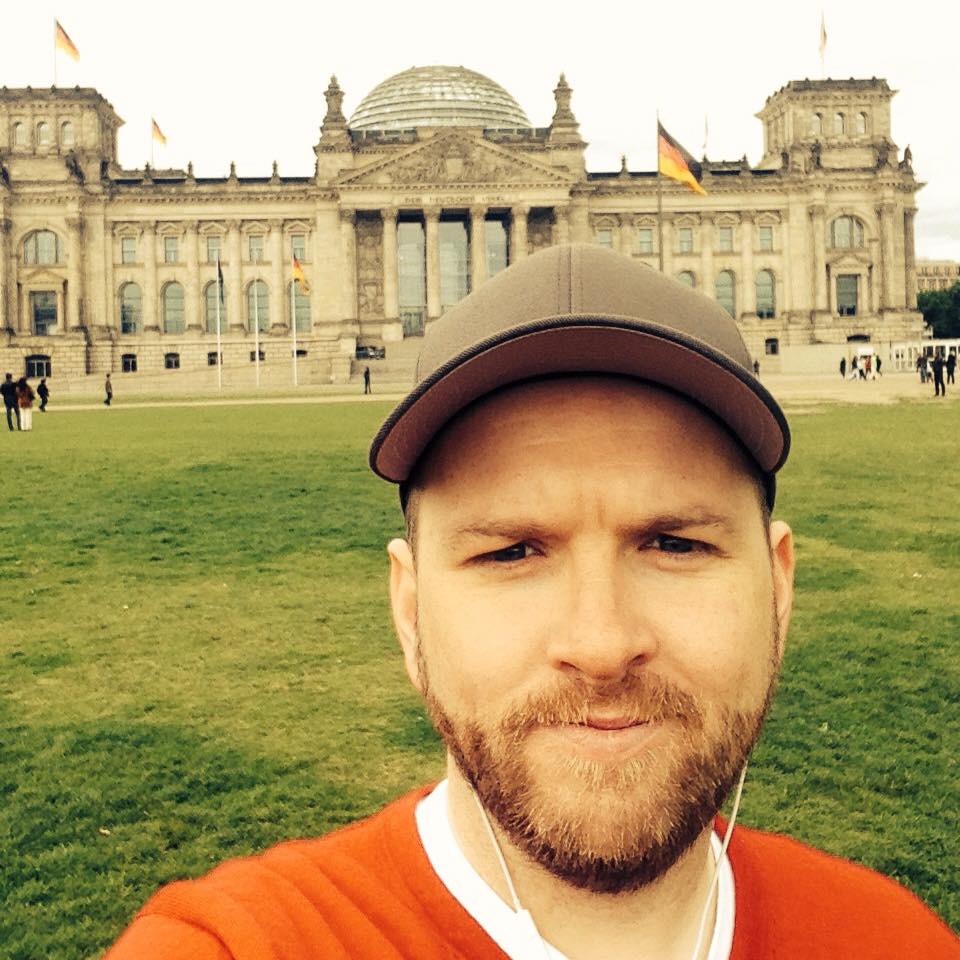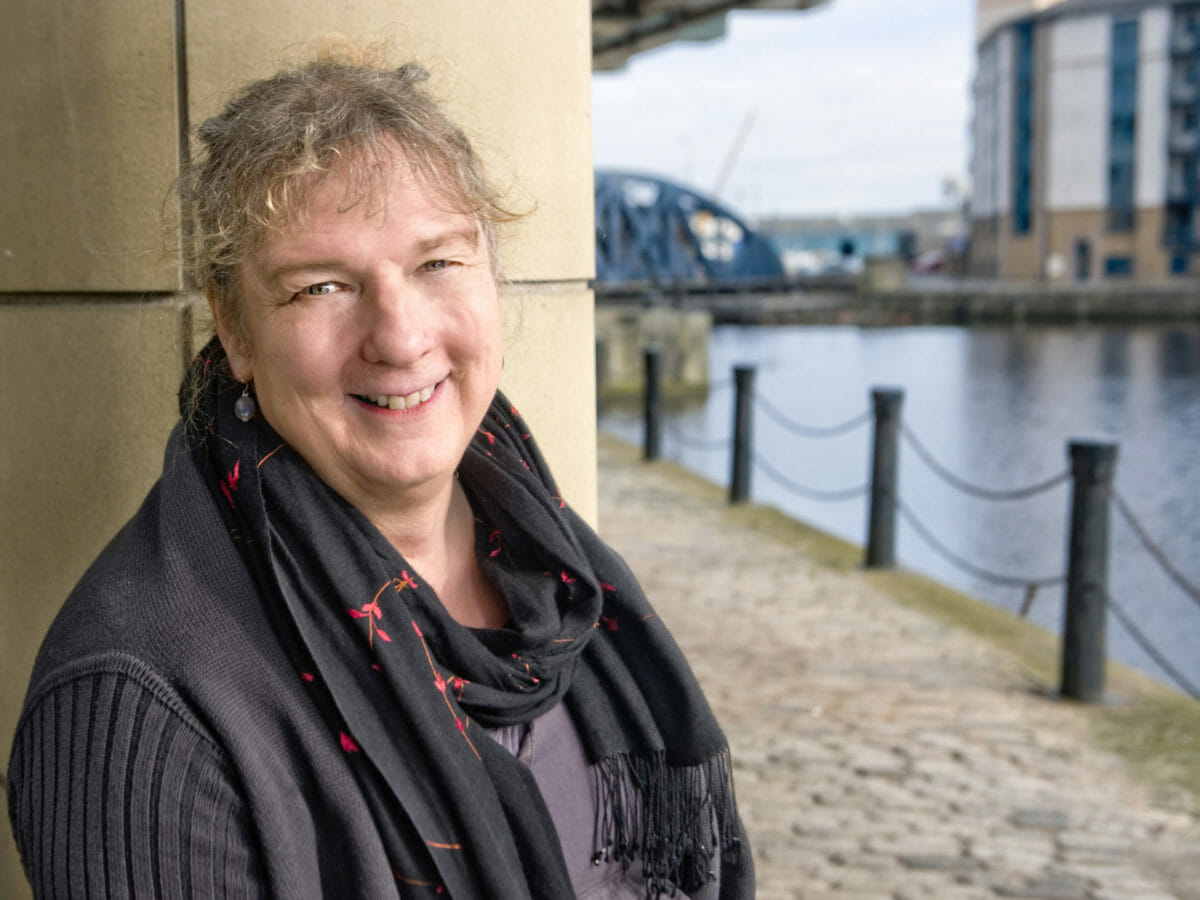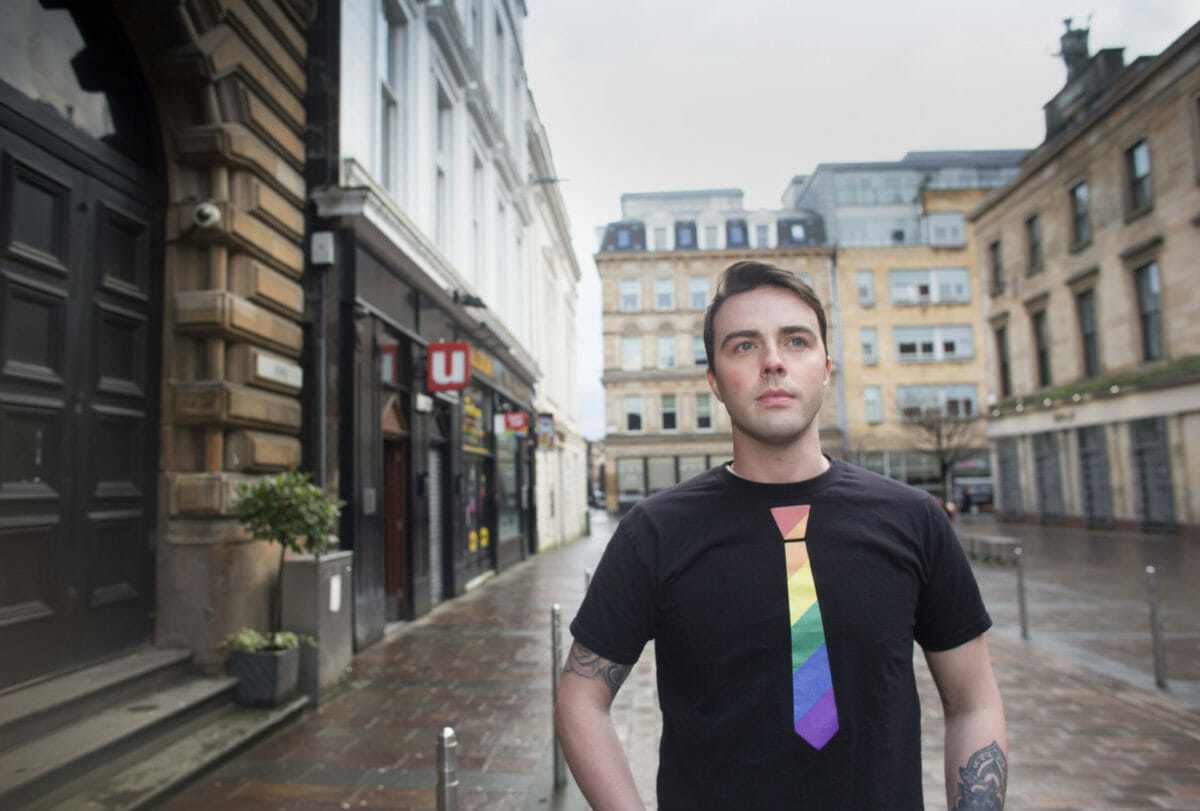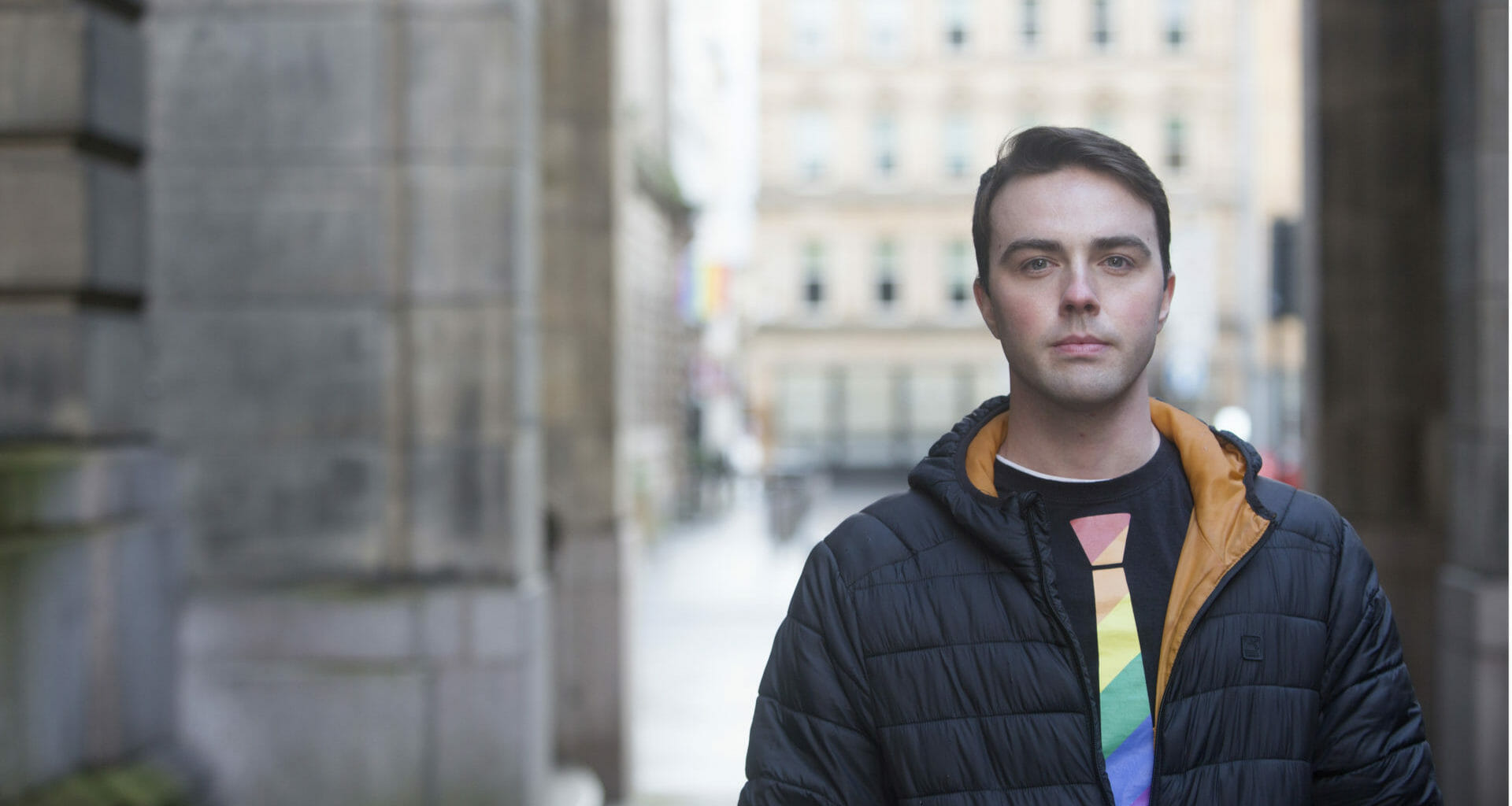“It must be hard for young LGBT people in the present to even imagine how difficult it was a mere thirty or forty years ago,” says Donald Gray, whose lifelong activism started in the 1970s when homosexuality was a crime.
Over the past two decades, Scotland has developed a positive reputation for advancing LGBT rights, but this wasn’t always so. Gray joined the Scottish Homosexual Rights Group (SHRG), formerly the Scottish Minorities Group (SMG), at the height of its campaign to end the criminalisation of homosexuality.
Although consensual sex between men had been decriminalised in England and Wales in 1967, it took a legal challenge at the European Court of Human Rights mounted by the SMG to force Scotland to follow suit.
The Criminal Justice (Scotland) Act of 1980 came into effect on 1 February 1981, forty years ago, but the painful legacy of criminalisation cast a long shadow over the lives of gay and bisexual men in Scotland.
Gray knew he was gay from the age of 12, but the climate of homophobia meant he had to keep this hidden until much later. “It made it clandestine, which isn’t healthy. That makes you always feel apprehensive,” he recalls. “It’s why a lot of men got married (to women), to go with the flow and act as though everything was ‘normal’ – I hate using that word, ‘normal’.”
This is why Gray considers himself one of the “lucky” ones. “I found a group in the 70s that took me through the decades, that made me feel I had a purpose and worked with my differences rather than fought against them.”
By the late 1970s SHRG had several branches around Scotland, with over 1,200 members at its peak. Although pushing for decriminalisation and, later, the equalisation of the age of consent were central to the group’s activities, Gray says what really inspired him to get involved, after seeing an advert in the Paisley Express, was his desire to “meet people”.
“There were very few places people could go in freedom to talk to each other. So a lot of the social life revolved around these groups,” he explains.
Particularly for the men who came before him in the 1950s and 60s, there was a real fear of being criminalised and imprisoned. “The police used to entrap people to expose themselves as homosexuals. For example, in public toilets there were police officers used as bait.”
While the situation had improved somewhat by the 1970s, Gray says “you still had to be careful”, particularly those who were concerned about the potential impact on their livelihoods.
“There were gay peple in the police, in the army, women who were nurses or medical staff, who were very worried indeed,” he says. “If you got careless you could get sacked just for mentioning that your persuasion was different from everyone else’s.”
When decriminalisation was finally achieved, Gray remembers the community being “overjoyed”. “A lot of members dedicated their lives to this. I think we forget that – a lot of it went without thanks or acknowledgement. And most of the people were not extraordinary people, they were run-of-the-mill Scottish folk, but the groups made them determined to fight.”
Of course, Gray points out, this victory was just the beginning. Decriminalisation in Scotland coincided with the start of the HIV and AIDS epidemic and a time of “huge opposition” to the gay community, not least from Margaret Thatcher’s Conservative government.
The police used to entrap people to expose themselves as homosexuals. For example, in public toilets there were police officers used as bait
Donald Gray, LGBT rights activist
Scott Cuthbertson, development manager for LGBTI charity Equality Network, now aged 41, was among the first generation of Scottish children to grow up post-decriminalisation. He was also among the generation whose school career took place almost entirely under Section 28, a law introduced in 1988 across England, Scotland and Wales, prohibiting the “promotion” of homosexuality in schools.
“In the 90s, when I was a teenager, it could almost have been illegal,” Cuthbertson says. “There was no support. There was no help. There was no one I could speak to about it. I wasn’t even able to speak to myself about it.”
Cuthbertson had a feeling he was “different” in primary school, but didn’t fully realise he was gay until high school. “In school nobody was talking about it, apart from maybe saying ‘oh you’re a proof’, without really knowing what that meant. I heard stuff on the playground like AIDS stood for ‘anally inflicted death sentence’ and I remember thinking, ‘is that what applies to me?’”

It wasn’t until he was 17 and his family got their first computer that he was able to go online and learn more about himself. That, and late-night viewings of Channel 4 series Buddha of Suburbia, in which the main character was a bisexual man. “I was terrified my parents would catch me, sneaking into the living room when they had gone to bed and turning the volume down low.”
Cuthbertson’s first experience of telling another person he was gay was when he joined the LGBT society at Paisley University. “I must have walked past that door 40 or 50 times before I plucked up the courage to go in. From that point I never looked back.”
Since then, Cuthbertson has committed his life to LGBT activism, working with Equality Network since 2005. Now, he feels “incredibly lucky for how far we’ve come in such a short space of time”.
“When I went to uni, people could still be sacked for being gay, there was no civil partnership, no adoption rights. In a decade and a half we’ve come very far, mainly because of the generation ahead of me who worked so hard to gain that level of equality.”
In a decade and a half we’ve come very far, mainly because of the generation ahead of me who worked so hard to gain that level of equality
SCOTT CUTHBERTSON, EQUALITY NETWORK
However, he stresses that there is still work to do. For gay men in Scotland, Cuthbertson says it’s still common to “get abuse in the steet for holding your partner’s hand”.
Meanwhile, he suggests Scotland is “seeing the biggest backlash on LGBT rights since Section 28”, aimed at trans people in particular. For many involved in campaigning for LGBT rights, this issue is intimately interconnected with the broader trajectory of LGBT history.
Born in England in 1950 before moving to Scotland for university, playwright Jo Clifford’s life has spanned the same period as Donald Gray’s and has been fraught with many of the same challenges, albeit in different ways.
Clifford only began to live as an “out” trans woman in 2005, shortly after her wife’s passing, but it was something she knew about herself from a young age and believed she had to “repress”.
“I spent my childhood in an atmosphere of extreme homophobia,” she remembers. “My mum was very afraid I would turn out to be gay. She had a terror men would have sex with me, as I was a very pretty boy. She died when I was 12 before I had a chance to talk about it with her.”

At that time, Clifford points out that it was not only illegal for a “man to make love to another man”, but that men could also be criminalised for “holding hands in public” or other public displays of affection. This environment was “a source of great torment” for her as a young person, who suffered from “internalised shame”.
Clifford was 14 or 15 when she first “confronted the idea that I would be better being a girl”, but felt that this was “sick and wrong and ridiculous”. “I never had any expectation of having a relationship with anyone, a man or a woman. It took me by complete surprise when Susie and I fell in love,” she adds.
Although she did speak about her feelings about her gender identity with her wife of over 30 years, it remained the subject of an ongoing “debate”. “I was very afraid of it, and Susie was afraid of it – she was afraid of losing me.”
In Clifford’s view, homophobia and transphobia are driven by the same beliefs and rooted in a “hatred of women”. “When I was growing up, gay men were seen as effeminate and disgusting. When I came out, a man looked me up and down and said ‘but you’re a man’, as if to say ‘how could you debase yourself to make yourself feminine?’ We have a common enemy, and that’s the patriarchy.”
When I was growing up, gay men were seen as effeminate and disgusting. When I came out, a man looked me up and down and said ‘but you’re a man’, as if to say ‘how could you debase yourself to make yourself feminine?’ We have a common enemy, and that’s the patriarchy
JO CLIFFORD, PLAYWRIGHT
Now, Clifford sees her experience as a sign of how far things have come. “To live as a woman in society, it’s not something I would have dreamt of in my 20s or even 30s. It’s immeasurably easier now – it’s absolutely astonishing.”
In 2009, Clifford first performed her new play ‘The Gospel According to Jesus, Queen of Heaven’, in which Jesus is a trans woman. At that time, she wasn’t aware of any other trans performers in the country, but she has since witnessed a “transformation” in this regard.
Even in daily life, Clifford feels she now enjoys a “remarkable amount of understanding and sympathy” from people she meets. “I’ve experienced a huge amount of change – good changes.”
It is with all of this in mind that she feels able to “remain hopeful”, despite the sense that LGBT people are faced with “a dangerous and worrying time”.
25-year-old activist Jordan Daly, who co-founded the Time for Inclusive Education (TIE) campaign in 2015, also looks to LGBT history to “inspire and motivate” him. “There’s a lot of power in understanding the community you’re a part of,” he says.
Although he started school the year Section 28 was scrapped, Daly feels he was denied that understanding by his formal education. “I went through my whole time at school and didn’t learn anything about being LGBT, about decriminalisation, the AIDS epidemic, or Section 28.”
This, and hearing the word “gay” used as an insult on the playground, taught him to remain silent on his own feelings. “When my friends said they had a crush on Angelina Jolie or Megan Fox, my crush was on Lee from Steps. I would open up my Steps Gold booklet and my heart would skip. But I understood I shouldn’t talk about that.”

Despite the gulf of time between them, Daly’s memory of dealing with his own sexuality echoes the experiences of his older counterparts. “When I understood I was gay, it kick-started years of shame and isolation, and feeling like I was keeping this big secret.”
Daly sees a direct link between the history of “state and systemic oppression” of LGBT people and the homophobic attitues which continue to this day. “If you criminalise something, the message to the wider society is that this is wrong, it’s immoral, you don’t engage in this behaviour. It feeds a stigma that grows and grows.”
It was only at age 17 or 18, when he started to “self-learn” about LGBT history, that his outlook began to change. “It started with me watching ‘How to Survive a Plague’, a documentary about the HIV and AIDS epidemic, and an organisation called ACT UP,” he explains.
“I was amazed. I saw people who were gay and proud, and the tragedy, and the community support. That was a life-changing moment for me.”
As a 25-year-old gay man I can live with my boyfriend and not be afraid that my neighbour will call the police. I can get a mortgage, which wasn’t possible during the HIV and AIDS epidemic. I can be open about myself and my relationships in my employment. I can marry my boyfriend and have the same rights as any other couple.
JORDAN DALY, CO-FOUNDER OF TIME FOR INCLUSIVE EDUCATION
Just a couple of years later, Daly began campaigning for LGBTI-inclusive education in schools, and by late 2018 the Scottish Government had announced that Scotland would become among the first countries in the world to embed LGBTI inclusion across the curriculum.
This progress, in Daly’s view, is the latest step in a long journey towards equality. “Every generation of LGBT people has had a new set of freedoms, won by the generation before them,” he says.
“As a 25-year-old gay man I can live with my boyfriend and not be afraid that my neighbour will call the police. I can get a mortgage, which wasn’t possible during the HIV and AIDS epidemic. I can be open about myself and my relationships in my employment. I can marry my boyfriend and have the same rights as any other couple.”
Knowing that the people before him “stood up” so that he could enjoy those rights today fuels Daly’s commitment to “pick up the torch”.
“I feel a moral responsibility to make things better for the next generation, whether that’s inclusive education or whether that’s increasing awareness of and addressing transphobia,” he says.
Reflecting on the successes of the campaigns of the 70s and 80s, Donald Gray describes much of the work he was involved in as “the activism of existing”. So many decades and milestones of progress later, and there is still something deeply political about existing as an LGBT person.
Cover image (and picture of Jordan Daly) thanks to Angela Catlin.














